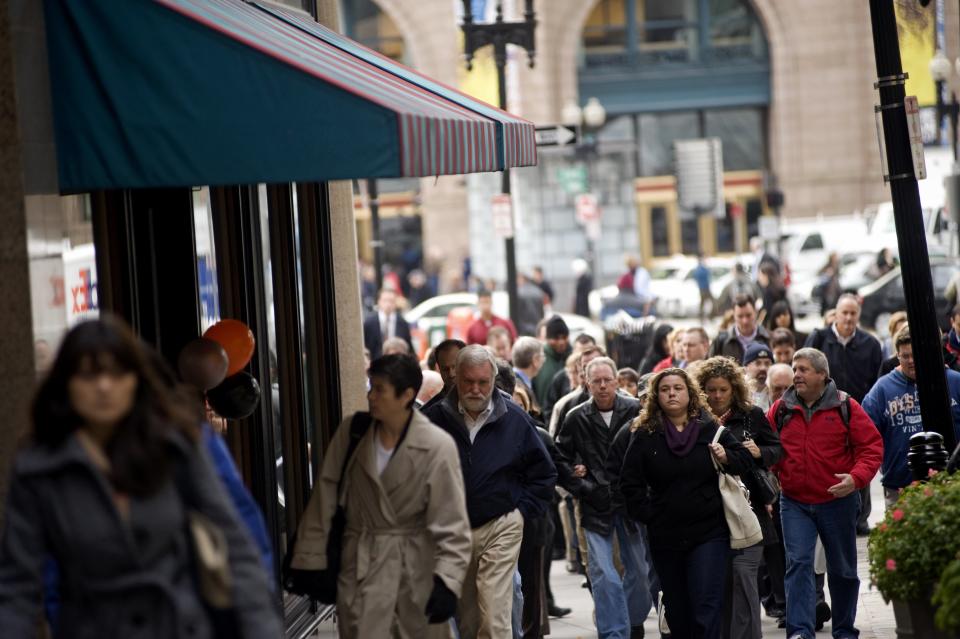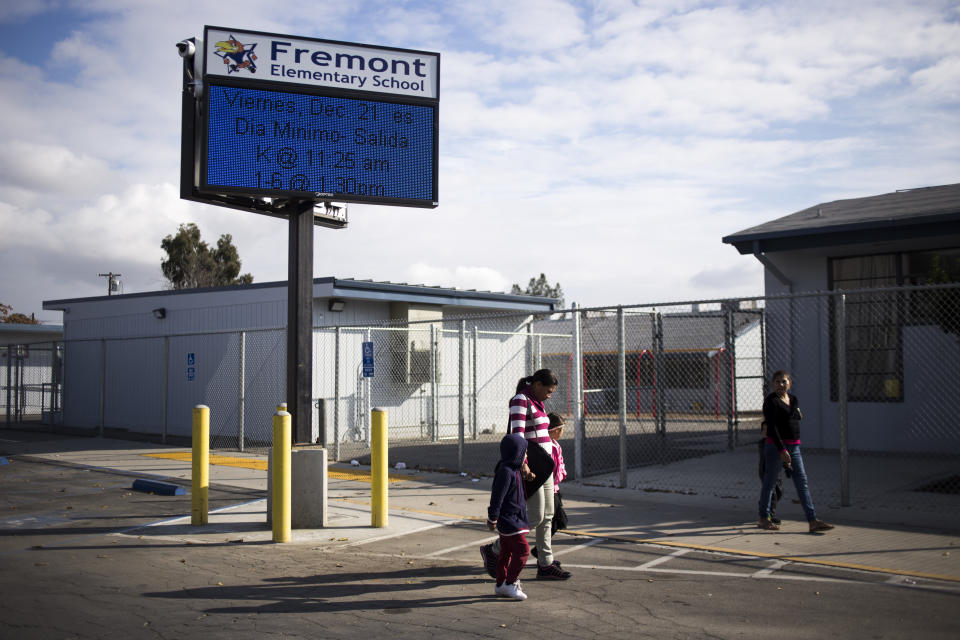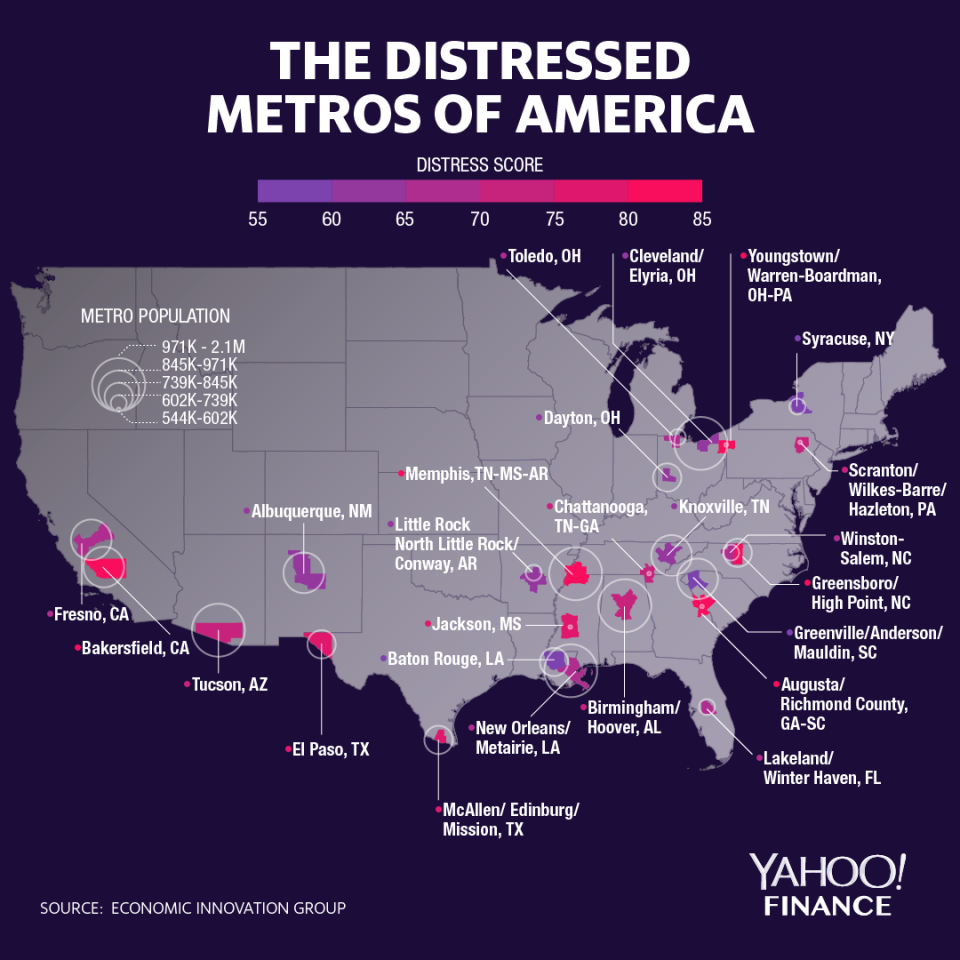These U.S. cities are seeing the fastest job growth right now
The number of jobs in America continues to grow, with Boston leading the pack, according to a new report.
The report by Glassdoor, which looked at trends in the job market in July and compared it to July 2018, found that the New England city had experienced the fastest growth in job openings, growing at 10.6% compared to the previous year.
The key industries responsible for these job openings were restaurants and bars and healthcare and hospitals. Altogether, around 153,000 jobs were added in Boston.
“Healthcare is a big industry in Boston and a number of large healthcare providers are major employers for area residents,” Glassdoor Senior Economist Daniel Zhao told Yahoo Finance. “In Boston, we’re seeing double-digit job growth in healthcare, despite stagnation nationally in the industry.”
Philadelphia came in second place with 8.3% rate of growth, adding around 111,000 jobs. Atlanta and Seattle followed by adding 122,600 and 113,000 jobs, respectively.

San Francisco boasts of the strongest pay growth
Wage growth is a slightly different story.
While wages have only increased by 1.9% overall, with median base pay rising to $53,602, according to Glassdoor’s research, some areas are outperforming.
San Francisco, for instance, boasted a 3.6% increase in pay growth, compared to the same time last year. Median base pay in the metro area came in at $72,878.
“Over the last year, San Francisco has consistently seen the fastest pay growth among the cities we track,” Zhao said.

Primary reasons for the pace of pay growth include the “fierce competition for workers among the many tech companies in the area,” Zhao explained, as well as the rapidly rising cost of living.
On the East Coast, Boston saw wages grow 2.6% to nearly $62,000.
Los Angeles and D.C. tied for second place with Boston, with year-on-year pay growth at 2.6% with wages roughly around that range.
But the data also revealed that on the flip side, in San Francisco, jobs only grew by 1.1% over the same period.
In other words, while people were earning more in San Francisco, the weak growth in the number of jobs suggests that “the increasing cost of hiring may be pushing employers to consider looking for talent elsewhere,” Zhao wrote.

Asymmetric benefits across U.S. metros
Overall, the benefits of a booming economy haven’t been proportionately distributed across the U.S.
According to a separate study by the Economic Innovation Group (EIG) — which was originally published in October 2018, and looked at around 25,800 zip codes which is approximately 99% of the population — many metro areas have been left behind since the Great Recession, and are unlikely to ever fully recover.
The EIG report highlighted that areas like Bakersfield, California, McAllen-Edinburg-Mission in Texas and Memphis on the border of Tennessee, Mississippi and Arkansas were the 3 metros in the U.S. which had the largest number of people living in distress.

A key factor that’s contributing to the gap is education.
Bakersfield in particular, apart from being one of the most distressed metro areas, also had “the lowest college degree attainment rate of its peers, with only 15.7% of the adult population holding a bachelor’s degree or higher.” This was also half the national rate, according to the report.
And that gap is expected to “widen further in the years ahead,” the report added.
—
Aarthi is a writer for Yahoo Finance. Follow her on Twitter @aarthiswami.
Read more:
Americans are spending more on vacation this summer — but there’s a catch
Elizabeth Warren unveils 'broad cancellation plan' for student debt
'The clock is ticking' on U.S. consumer loans — and that could mean a slowdown, Deutsche Bank warns
Read the latest financial and business news from Yahoo Finance
Follow Yahoo Finance on Twitter, Facebook, Instagram, Flipboard, SmartNews, LinkedIn, YouTube, and reddit.


